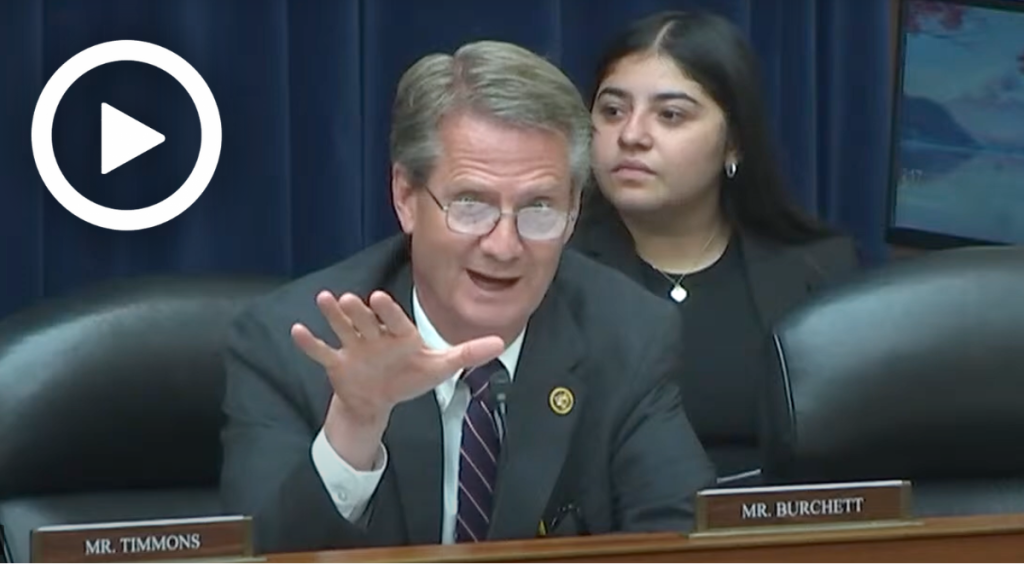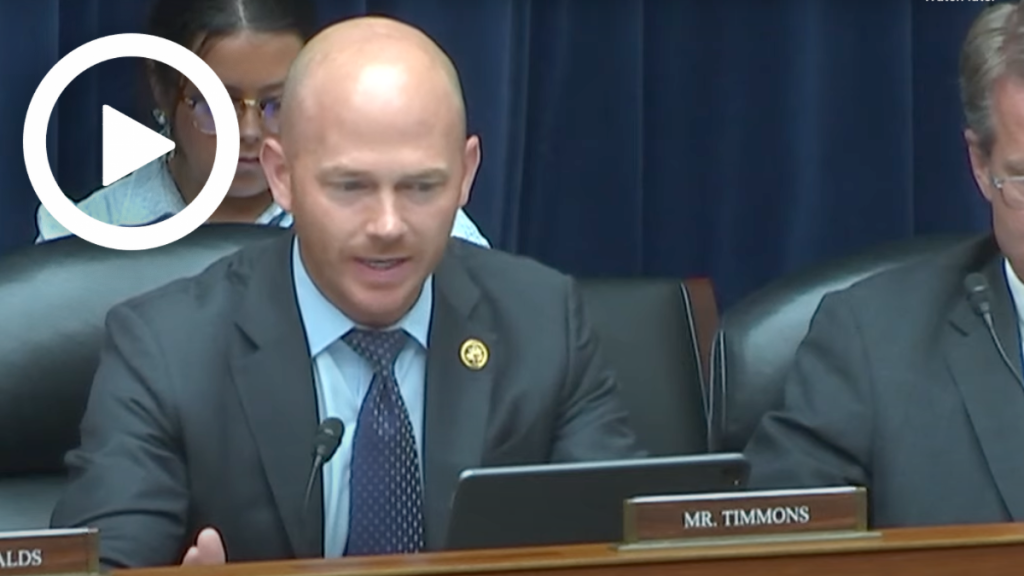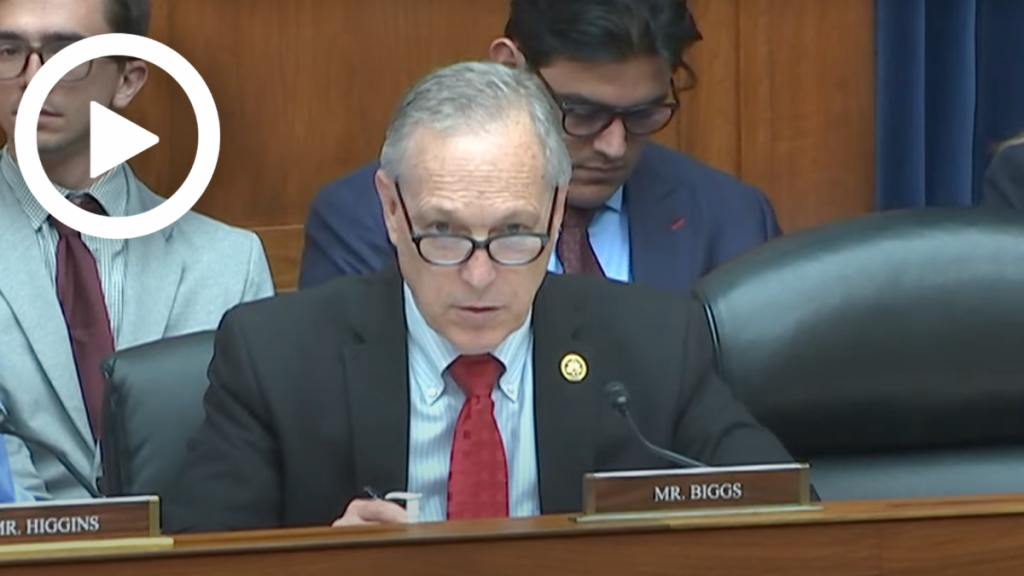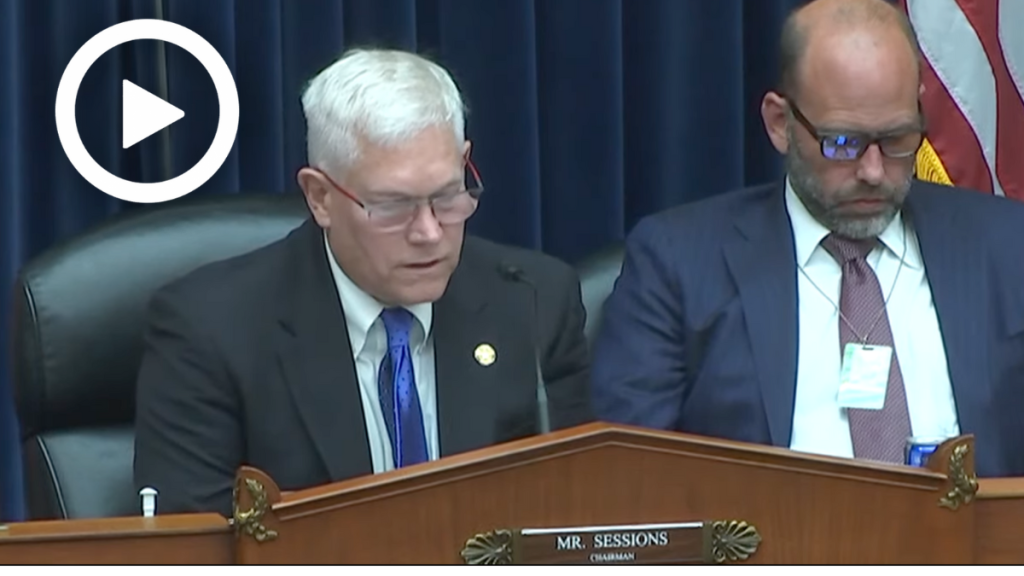Hearing Wrap Up: DOD Says Security Clearance Process Updates are ‘Unacceptably Late’
WASHINGTON—The Subcommittee on Government Operations and the Federal Workforce held a hearing yesterday titled “Security at Stake: An Examination of DOD’s Struggling Background Check System” to examine how the Department of Defense (DOD) has fallen short in its mission to modernize the personnel vetting process with the National Background Investigation Services (NBIS) system. At the hearing, both Republican and Democrat lawmakers expressed concern about the continued delays with the NBIS system and possible implications for our nation’s national security.
Key Takeaways:
The National Background Investigation Services (NBIS) system is billed as critical to reforming the long-troubled security clearance process, but it is better described as a case study in mismanagement. After eight years and over $600 million spent on the system, there is very little to show for it.
- Mr. David Cattler, Director of Defense Counterintelligence and Security Agency at the U.S. Department of Defense discussed DOD’s delay during his opening testimony. “We feel an urgency to move quickly because we are behind the expected delivery schedule and because the nation needs NBIS to support the personnel vetting mission. However, we also need to move forward at a responsible pace to ensure that we understand the problems and are addressing them.”
- Mr. Cattler continued, “I am confident in our path forward and I do expect to be held accountable.”
Ms. Alissa Czyz, Director of Defense Capabilities Management at the U.S. Government Accountability Office (GAO) emphasized GAO’s top concerns with DOD’s handling of the NBIS system relate to its unreliable cost estimate, delayed timing, and lack of planning for cybersecurity attacks.
- “As DOD gets NBIS back on track, I can’t emphasize enough that it needs to embrace key program management principles, like having a reliable schedule and cost estimate. Without these, the program will continue to suffer setbacks,” Ms. Alissa Czyz said during her opening testimony.
- “In summary, NBIS simply cannot fail. Having fully functional and secure IT systems to conduct personnel vetting is paramount to keeping our nation safe.”
Member Highlights:
Rep. Tim Burchett (R-Tenn.) highlighted the years-delayed timeline for the NBIS program and discussed GAO’s process for identifying vulnerabilities as the system is developed.
Rep. Burchett: “The status of the National Background Investigation Services system. Where would you say that is at?”
Mr. Cattler: “Congressman, it is unacceptably late. And we have underdeveloped the required capabilities to meet our policy deliverables.”
Rep. Burchett: “It was supposed to be fully operational about 2019, is that correct?”
Mr. Cattler: “Yes Congressman, that’s correct.”
Rep. Burchett: “And the projection of when it will be fully operational?”
Mr. Cattler: “Congressman, we are programed out through 2030. We aim in the current plan to have the legacy system sunsetted no later than fiscal ’28.”
Rep. Burchett: “Ms. Czyz, how can we have confidence in this agency and is there an investigation into what vulnerabilities have existed since it took over in 2018?”
Ms. Czyz: “With new leadership, we are encouraged that DCSA can get NBIS back on track. But they’ve got to go back to key management principles. The basics: Developing a reliable schedule and cost estimate for the program, enhancing oversight particularly with cybersecurity, these are key fundamental program management principles.”
Rep. William Timmons (R-S.C.) asked about how DOD is implementing the continuous vetting process – an ongoing, real-time review of background information.
Rep. Timmons: “Is every member of military, civilian workforce, and contract with a security clearance currently subject to continuous vetting? If not, when will this be the case?”
Mr. Cattler: “Congressman, yes, I believe they are all enrolled currently.”
Ms. Czyz. “It’s true that they’re all enrolled at this point, those with security clearances, but it’s our understanding that not all of them are undergoing continuous vetting at this time. There’s varying degrees of when CV is going to be implemented.”
Rep. Timmons: “How do you prioritize which individuals will have additional scrutiny?”
Mr. Cattler: “Yes sir. We’re doing it and it is an ongoing process. We take a look at how long they have been cleared for and we also take a look at the nature of the positions that they’re in when we do that prioritization.”
Rep. Andy Biggs (R-Ariz.) examined how while over half a billion dollars have been spent on NBIS since 2016, there was no reliable cost estimate for how much NBIS would ultimately cost.
Mr. Cattler: “DOD has spent approximately 825 million dollars on NBIS system development since 2016.”
Rep. Biggs: “And that’s separate than the 1.35 [billion]?”
Mr. Cattler: “The total is 1.35, because the remaining forty percent, which is about 575 million, was spent on sustaining legacy systems to deliver the personnel vetting systems to DOD and federal agencies between fiscal ’21 and fiscal ’23, with the bulk of the 575 spent on legacy BI systems.”
Rep. Biggs: “Does that track with what you know, Ms. Czyz?”
Ms. Czyz: “Our number is a little bit higher than that. In addition to that 500 million-ish that Mr. Cattler mentioned, there are also costs to OPM,” “we have that at a little bit over 250 million more than DCSA stated.”
Subcommittee Chairman Pete Sessions (R-Texas) asked for DOD’s commitment that they will effectively complete the NBIS program.
Rep. Sessions: “Can you tell us, are you going to do, as you’ve heard Ms. Czyz say, get this done and have it done correctly?”
Mr. Cattler: “Congressman, we will get it done properly. I don’t feel undo pressure to move quickly, because as I’ve said, it’s important that we get it right. If that takes a little bit of time to do, then I think that’s appropriate and acceptable.
“At the same time, I’m also mindful, as members of this Committee have highlighted just in this hearing, that we are eight and a half years into a three-year program. We are 1.345 billion spent on about a 700-million-dollar program and every penny counts.”
CLICK HERE to watch the full hearing.



